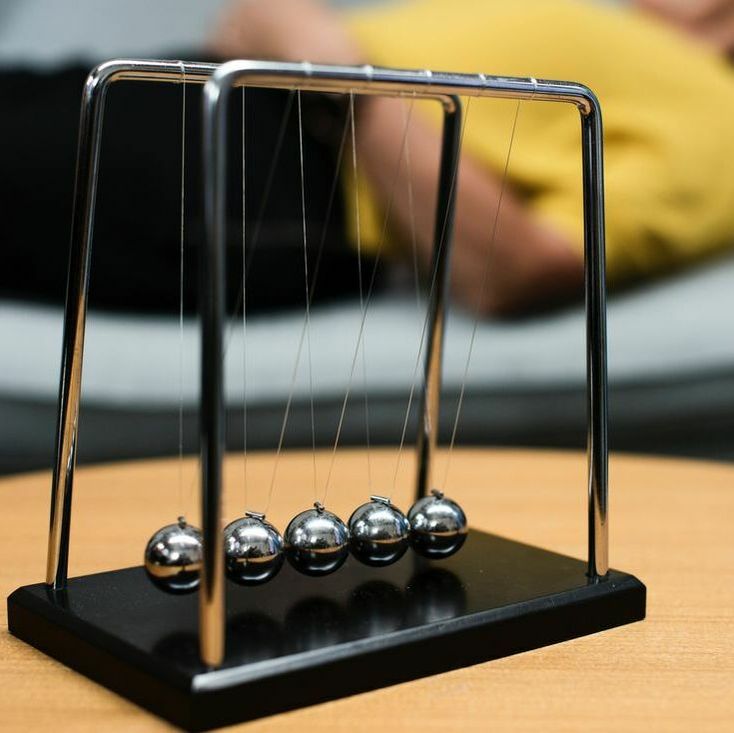|
This article was first published on ProHealth on September 26th, 2018. It was later removed for reasons outlined in this notice. Most of the links on this post are informational, but a few are affiliate links to help maintain this website. American culture is synonymous with independence. We've developed a cultural belief system that we should be able to do everything on our own, but the truth is that we are a social species. The research has long suggested that people who have strong social connections tend to be happier and live longer, partially due to having a support system in times of difficulty. This is especially true as it relates to depression. Although our connections to others are critical for managing depression, many people remain resistant to asking for help, especially when it comes to our mental health. In large part, it's because there continues to be a stigma attached to seeing a therapist—therapy is still seen as something for people in crisis or for those who can't pull themselves up. In actuality, it's quite the opposite. Recognizing you need help and taking steps to get it are signs of good self-awareness and self-care. If you are coping with depression, you may not feel ready to see a therapist, and that is understandable—it's a big step. But it’s important to remember that change happens in relationship. That's why many therapists have therapists ourselves. When you try to make changes on your own, you may spin your wheels for many years trying to make adjustments. In most circumstances, change occurs when you have someone who can help you identify the key issues, provide accountability for you to reach your goals, and hold space for you when you are coping with the tough stuff. So how do you know if it's time for you to pick up the phone and make an appointment? Here are eight ways to tell if today is the day: 1. You feel like you have no one to talk to. Maybe your support system isn't very supportive. Or, maybe you've tried telling your family and friends about your issues, and they minimize what you're going through or try to fix the problem without listening. You may even not want to share your challenges with the people around you. We can't control how others are going to react to our problems, so if you feel alone in your worries, a therapist may be able to help. 2. You used to manage stress a lot better. If you used to manage challenges and now feel like things are out of control, it might be a sign your symptoms have increased, or your stress tolerance has decreased. This can happen for many reasons; it's a therapist's job to help you figure out what might be the cause and possible solutions. 3. You feel sad more often than you don't. Major depressive disorder can be mild, moderate, or severe, and it changes in intensity based on current life circumstances. After the emotions of a stressful, life event pass, do you find that your mood isn't rebounding like it used to? If you notice that your depressions symptoms have increased and don't seem to be abating like they typically would, it may be time to see a therapist. Whenever there's a change in the severity your symptoms, it’s a good idea to explore it with a mental health professional. 4. You're already on medication, and it's helping, but you still want to feel better. There is a great deal of research around talk therapy and medication. The evidence mostly leans towards both being effective treatments on their own, but they're slightly better when used together. If you thought you would feel a bigger difference on medication, it might be an indication that therapy can help you go the extra mile to recovery. 5. You need accountability. A major symptom of depression is a lack of motivation. Naturally, this leads to setting goals for yourself and not being able to reach them. Motivating yourself to do anything with depression is already extremely difficult, so it helps to have someone who is skilled in how to set realistic goals, teach you how to remove barriers, and celebrate your successes with you. 6. Your symptoms are starting to affect your job or home life. You may think you had your symptoms managed and then you realize your work performance is slipping or there is more arguing at home. To determine the severity of depression, mental health professionals often inquire about how it affects one or more major areas of life functioning, such as concentrating, working, socializing, or taking care of yourself. Therapists are well-versed on how depression can seep into other areas of life and can help you gain a better understanding of your situation and develop a treatment plan on how to improve it. 7. You suffered a recent loss or are adjusting to a new stressor. Sometimes there are problems in life that seem insurmountable, especially if you are already coping with depression. Losing a loved one, being diagnosed with a chronic illness, getting fired from a job, or even having a baby, can turn your life upside down. You don't have to face these difficult events alone. A therapist will sit with you in your darkest moments, listen to you, and offer you support as you adjust to your new normal. 8. You want to. You don't necessarily need a specific reason to start therapy. If you have the desire, that is one of the best times to start, because it means you are ready to commit to the process. Therapy is always something to consider when you have depression. It's good to have an outside perspective, because depression changes the way you think and how you process events. Depression isn't static—you may feel okay one day, but the next day may feel like the lowest of low. It's important to have someone there in the ups and downs. You may have noticed that "You're in a crisis" is not on this list. I left it off purposely because sometimes therapy is not the first step when you are in a mental health crisis. If your safety or someone else's safety is at stake, don't wait for a therapy appointment that may take weeks to schedule. You can always call 9-8-8 or go to the nearest emergency room if you are in crisis. "You can’t be that kid standing at the top of the waterslide, overthinking it. You have to go down the chute." - Tina Fey
0 Comments
Leave a Reply. |
WelcomeI'm Kerry (She/Her/Hers) and I am a licensed therapist, group facilitator, poet, writer, & speaker. This is a place to acknowledge and validate our suffering and trauma, while also learning how to turn toward aliveness and spaciousness. Categories
All
Archives
April 2024
|
|
Copyright © 2024 Kerry J Heckman All rights reserved. Disclaimer.
|
|




 RSS Feed
RSS Feed